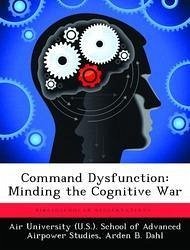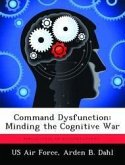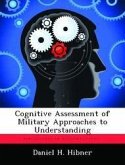This paper analyzes the factors and conditions of command dysfunction from the cognitive, or mental, perspective of command and control warfare (C2W). The author examines the limitations of rational decision making and the tension that exists between rational and intuitive processes. Next, the paper examines the vulnerabilities of rational and intuitive processes in order to build a cognitive warfare framework. The framework consists of three categories: the command baseline, stressors, and deception. The stressor and deception categories act on the command baseline. The analysis also suggests that there are a number of possible interactions that exist between the stressor and deception categories. The paper then uses the framework to analyze evidence of command dysfunction in three historical campaigns. The historical analyses study the German command during the Normandy invasion, the Allied command during the first week of the Battle of the Bulge, and the Israeli command during the first half of the Arab-Israeli October 1973 War. In addition to showing that there are interactions between stressors and deception, the analyses highlight the importance of understanding the adversary's command baseline. The paper concludes that effective C2W is not so much what is done to an adversary's command, but rather what he does to himself, perhaps with a little help.








